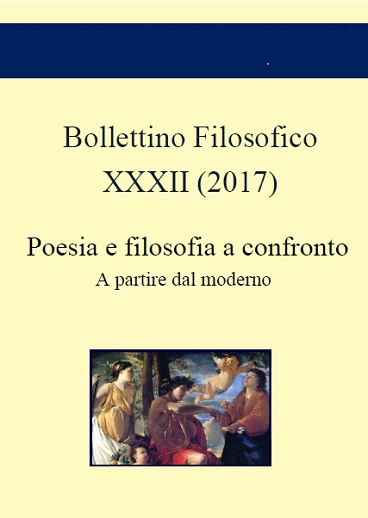Cavell’s Shakespeare, or the Insufficiency of Tragedy for Modernity
DOI:
https://doi.org/10.6093/1593-7178/5347Keywords:
Cavell, Shakespeare, Modernity, Tragedy, Film, Psychoanalysis.Abstract
Stanley Cavell’s philosophical interest in Shakespeare is so consistent that Shakespeare appears to have pre-organized, for Cavell, the intellectual situation from which to launch the ideation of modernity. I propose to discuss Cavell with a view to similar constellations in Walter Benjamin and Carl Schmitt, but careful of the fact that, unlike Schmitt or Benjamin, Cavell does not privilege Hamlet as a text to which Shakespeare appears reducible. Instead, Cavell’s Shakespeare is collective and paratactic, with the implication that tragedy, taken in isolation (even as it morphs into mourning play), fails to capture the truth of modernity. What emerges in Cavell is a Shakespeare whose tragedy works from within a Lockean social contract with other genres – a condition crucial to Cavell’s philosophical concerns.Downloads
Downloads
Published
How to Cite
Issue
Section
License
The author retains the copyright of his work whilst granting anyone the possibility “to reproduce, distribute, publicly communicate, publicly exhibit, display, perform and recite the work”, provided that the author and the title of the journal are cited correctly. When submitting the text for publication the author is furthermore required to declare that the contents and the structure of the work are original and that it does not by any means compromise the rights of third parties nor the obligations connected to the safeguard of the moral and economic rights of other authors or other right holders, both for texts, images, photographs, tables, as well as for other parts which compose the contribution. The author furthermore declares that he/she is conscious of the sanctions prescribed by the penal code and by the Italian Criminal and Special Laws for false documents and the use false documents, and that therefore Bollettino Filosofico is not liable to responsibilities of any nature, civil, administrative or penal, and that the author agrees to indemnify and hold Bollettino Filosofico harmless from all requests and claims by third parties.

